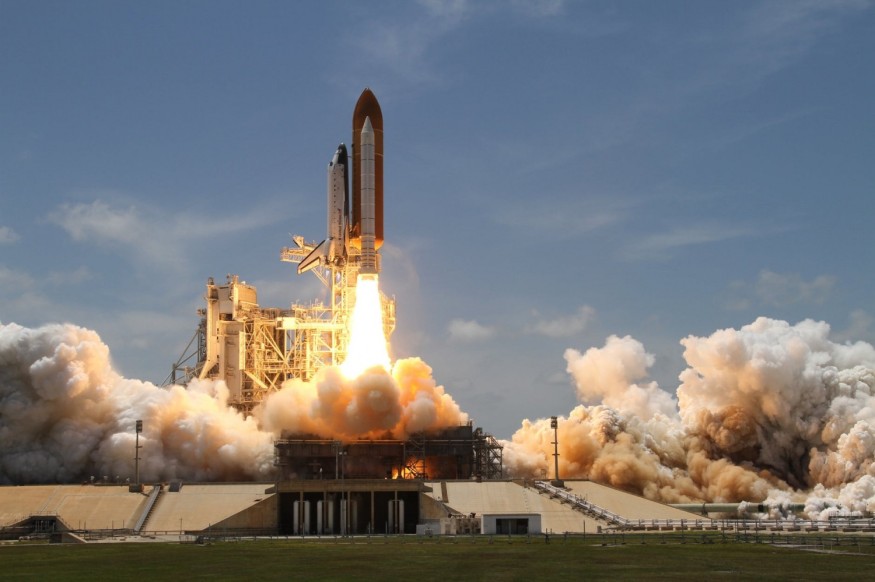
The year 2020 is the perfect year for scientific anniversaries and recognizing some amazing scientists of the past for their work and contributions to mankind's collective knowledge.
Here are the top 10 science anniversaries in 2020:
10. Roger Bacon, 800th birthday
The date when Bacon was born is still unknown, but a passage in his writing shows that it may have been around 1220. He was one of the premier natural philosophers of his day. He studied at Oxford and then lectured at the University of Paris. He also became a Franciscan monk but usually got in trouble for breaking the rules.
He advocated the importance of experiment in investigating nature, and he emphasized the status of optics as fundamental science. He understood the need of applying math when explaining natural phenomena.
9. Bose-Einstein condensate, 25th anniversary
Albert Einstein made news after his death. He was one of the most famous scientists in the world, from black holes to lasers to gravitational waves, numerous major modern discoveries have merely verified predictions from years earlier rooted in his imagination.
In 1924, Bose sent Einstein a paper describing light as a gas of particles, which what we known now as photons. Einstein read a paper by Louis de Broglie indicating that matter particles, like electrons, could be construed as waves. Einstein collaborated with Bose and they ended up describing matter with Bose's math. It took 70 years before physicists overcame the technical challenges and proved Einstein and Bose right.
8. The Great Debate, centennial
The greatest debate recorded during the 20th century happened on April 26, 1920. It was when astronomers Harlow Shapley and Heber Curtis faced off at the Smithsonian Museum of Natural History in Washington, D.C. They debated about the understanding of the Milky Way galaxy and the winner was not announced until 1924 when Edwin Hubble showed that Curtis was right.
7. Discovery of electromagnetism, bicentennial
Two centuries ago, scientists did not know very much about electricity and curiosity got the better of them. Because of that curiosity, it led to a discovery of electricity and magnetism that benefits us all today.
6. Discovery of X-rays, 125th anniversary
X-rays were discovered by Wilhelm Rontgen in 1895. They were immediately put to use in the medical field. X-rays changed through the years, not only in medicine but also astronomy and even biology, as they are the tool that revealed the architecture of the molecules of life.
5. Rosalind Franklin, 100th birthday
Born on July 25, 1920 in London, Rosalind Franklin showed an early interest in science and trained as a chemist. She became an expert on coal and other carbon-based materials. She also earned a doctorate from the University of Cambridge in 1945. She then worked in Paris and developed skills at using X-ray crystallography to study crystalline structures. She also took up DNA studies and produced amazing X-ray images.
4. John Graunt, 400th birthday
Born on April 24, 1620, in London, John Graunt became a successful and influential merchant after taking over his father's drapery business. When he was 40 years old, he became interested in the weekly "Bills of Mortality" that enumerated deaths in his city. He eventually collected records of births and diseases to make tables that showed trends or patterns. He then subjected the data to mathematical analysis, showing insights such as women live longer than men and death rates were higher in cities than in rural areas.
3. Florence Nightingale, 200th birthday
Florence Nightingale was born to a British Family in Italy on May 12, 1820. Her family moved back to England while she was still a baby. She is known as the most famous nurse of the 19th century and called the lady with a lamp. But she was also known as an innovative practitioner of applied statistics. She developed statistical analyses to support her views on health and hygiene.
2. Prediction of the neutron, centennial
Scientists spent years trying to understand how the nucleus was put together, this was after Ernest Rutherford discovered the atomic nucleus in 1911. It required constituents with a positive electric charge. Rutherford deduced that the basic nuclear particle that is carrying positive charge was identical to a hydrogen atom's nucleus, and he named it the proton. Heavier atoms contained multiple protons.
1. The Atomic bomb, 75th anniversary
The atomic bomb that first exploded 75 years ago in July at Alamogordo, N.M., represents a technological discontinuity comparable to the invention of gunpowder, electromagnetism or fire itself. The main influence of an atomic bomb on society has been through its mere existence as a weapon in waiting, potentially ready to initiate Armageddon.
ALSO READ: Top 10 Most Popular Sciences among Students in 2019
© 2026 ScienceTimes.com All rights reserved. Do not reproduce without permission. The window to the world of Science Times.












